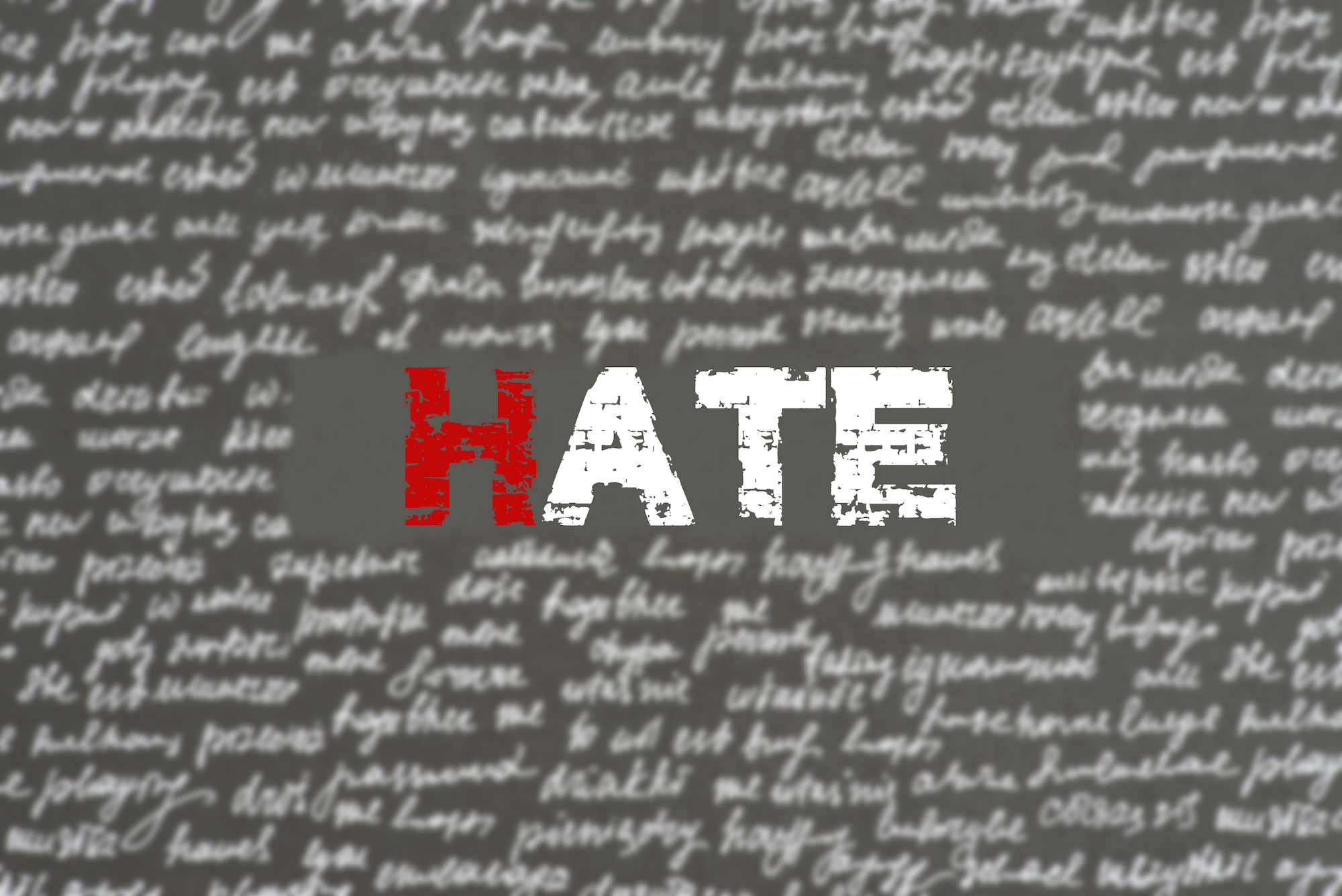February 17, 2023
In 1978, a novel was released in the United States that has since become the inspiration for extremist views and violent action. The novel tells the tale of a young man who is becoming involved with the so-called Order to defy the System that is working to exterminate White civilisation through leftist, multiculturalist ideals. The Order relies on the pledge and commitment of White citizens to coordinate a violent struggle against the people and institutions that represent and uphold the System.
In December 2022 at Wieambilla, a small town in Queensland, two police officers were killed in a direct assault. The words of the perpetrators, ‘they came to kill us, and we killed them’, can easily be misconstrued to refer to the particular circumstances of the day. The language, however, is not unlike the 1978 novel or the words of those who have followed in the footsteps of the novel’s protagonist, such as Anders Breivik (2011), Brenton Tarrant (2019), or Payton Gendron (2022). ‘They came to kill us’ does not speak to the police intervention at the Wieambilla property, but to an organised plot designed by those in power to extinguish ‘civilisation’.
In the days following the attack, the Queensland police was reluctant to call the Wieambilla shooting an act of terrorism. Two months later, the police defined the shooting as a ‘religiously motivated terrorist attack’. Based on diary entries of one of the perpetrators, recent (social media) messaging of the three perpetrators, and 190 interviews (the data of which has not been made publicly available), the police has argued the trio was motivated by premillennialism, a religious position on the future second coming of Christ which precedes a period of extreme suffering and destruction. It is surprising the Queensland police is specifically naming premillennialism as the rationale for the killing of two police officers, which they are basing on the perpetrators’ hatred for the police, and conspiracies around the COVID pandemic, climate change, and other known far right tropes that revolve around crises. Far right discourses are known to draw on religious ideas, but these are often used to legitimise an opposition against the established political order, rather than being fundamentally grounded in religion itself.
"They came to kill us' does not speak to the police intervention at the Wieambilla property, but to an organised plot designed by those in power to extinguish 'civilisation'."

Civilisation under threat?
What unites these different conspirational tropes of crises is the belief that civilisation is coming to an end. And this is why ideas such as premillennialism can go hand in hand with replacement theories that have no religious foundations, or find their basis in different religions, like Islam.
Although the idea of a great replacement has been the source of extremist politics throughout modern history (think of the Crusades, for example), it has entered democratic politics through a gradual process of normalisation since the turn of the century. Events such as 9/11 consolidated long-held discontents about the effects of a rights-based world order that emerged to prevent a repeat of the horrors of the 20th century. With the vision of pluralist societies, people who were previously excluded from the democratic processes were now considered equal citizens. Fast-forwarding half a century, this has led to the conclusion that those in power are orchestrating a dilution and gradual extermination of whiteness, culture, and civilisation. Statements like ‘they came to kill us’ can refer to the ‘devils’ and ‘demons’ of premillennialist beliefs, but can likewise be metaphors for the police, government, leftists and global elites, who are manufacturing the end of civilisation.
These far-right tropes have come to the surface and entered mainstream politics not in isolation but as other forms of extremism have set the geopolitical scene. Since 9/11, far right and islamist forms of extremism have come to constitute a dance; both responding to each other to upset and fragment the social and political order. This dance functions to re-create a collective imagination of civilisation; the idea that civilisation is a neat, historic construct that can be reduced to race, religion, culture, or nation. In the modern extremist islamist imagination, it is Western culture and her capitalist system that is diminishing Muslimhood. This view is grounded in the rejection that Muslimhood is diverse, fluid, and individual.
Polarised thinking
These shared beliefs around the inevitability of replacement are grounded in a mythology that civilisations are racially and culturally distinct and fixed in time. It rejects the historical view that different cultures coexist at specific junctures in time. Instead, it relies on a historical imagination that people and places are defined by sameness instead of otherness. When everyday struggles become linked to a civilisational threat, emotions such as anger, hatred, but also hope for a metaphor messiah, are mobilised around an identifiable culprit. When Brenton Tarrant killed 51 Muslims in 2019 in New Zealand, he targeted the immediate visible threat to white, European civilisation. When brothers Gareth and Nathaniel Train killed two police officers in Queensland, they targeted the enablers. Not unlike the hijackers of the planes that flew into the Twin Towers and the Pentagon considered those buildings symbols of a system that enables the demise of civilisation, albeit ‘another’ civilisation.
In a time of growing complexities, such a broad, whole-system, opposition is appealing to people being exposed to it. It provides a simple answer to a complex world, namely that there is one social or political group to blame for real and perceived loss (e.g., culture, religion, political power). And while a rigid opposition as such is not naturally bad – in times of oppression it is the force that can bring about emancipatory social change – it is when innocent people become the projection of hatred and violence. What far right and islamist extremists have in common today is a reliance on polarised thinking that distinguishes civilisational identities and carries them throughout time into the future. It takes a cherry-picking approach to the truths that inform social and political realities, which in the Wieambilla case appears evident in the relatedness to a religious belief to construe a simple narrative to explain our collective suffering.
Turning to fundamentalist civilisational beliefs can be considered a response to the so-called relativist thinking of the political left. This relativist position is what makes the liberal left, according to islamists and far right extremist alike, reluctant to make normative claims. A reluctance that will inevitably lead to to a world where everything goes and nothing is impossible (hence the push-back to LGBTQI+ rights). The antithesis to relativism is firm truths about the essence of civilisation and these can be found in different mythologies.
It is therefore difficult, and arguably counterproductive, to pigeonhole instances of aggression and violence according to classifications that are neat and narrow. It will make us lose sight of the connections between ideas that function to produce a much larger political platform. Rather than seeing the actions of Brenton Tarrant and the Train family in isolation and fragmentation – with one being an act of Islamophobia and the other an instance of presumed premillennialism, respectively – it seems important to find the commonalities in the way they function together. After all, the success of the far right globally is in their ability to create linkages between ideas, interests and identities that tend to be incoherent and incompatible.
Author
 Dr Susan de Groot Heupner is a cross-disciplinary research scholar aiming to advance current understandings of binary thinking in popular political identities through a perspective of mutual relations between conceptions of self and other. She completed her PhD in Political Sociology in 2022 examining how far right and islamist political parties operate together to construct an irreconcilable Muslim subject. She is a current GCSCR Research Fellow under the Mobilities, Communities and In/Securities theme where she is working on a 12-month project exploring population replacement theories in far right and islamist politics.
Dr Susan de Groot Heupner is a cross-disciplinary research scholar aiming to advance current understandings of binary thinking in popular political identities through a perspective of mutual relations between conceptions of self and other. She completed her PhD in Political Sociology in 2022 examining how far right and islamist political parties operate together to construct an irreconcilable Muslim subject. She is a current GCSCR Research Fellow under the Mobilities, Communities and In/Securities theme where she is working on a 12-month project exploring population replacement theories in far right and islamist politics.
You might also like

How can students with ADHD be better supported at school?
For many students with ADHD, the classroom can be a highly demanding environment as difficulty managing unwanted behaviours can make schooling a challenging and negative experience. Dr Kathy Gibbs looks at how students can be better supported at school.

Australia’s east coast cyclones: Using fifty years of data to explore future risks
Researchers from Griffith University’s Coastal and Marine Research Centre used fifty years of data from the Bureau of Meteorology to investigate the characteristics and trends of tropical cyclones.

Rewinding the times
Maybe you used them in your childhood? Maybe you gave your first teenage crush a carefully selected playlist recorded onto one or maybe you just recently learned about them through social media – the audio cassette.

